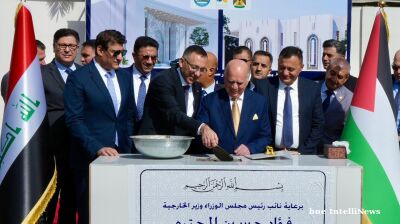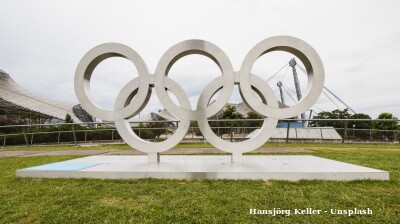The ceasefire between Israel and Hezbollah took effect at 4:00 AM on November 27, bringing a temporary end to over a year of cross-border strikes and months of intense military escalation that claimed thousands of lives. The 60-day agreement requires Hezbollah fighters to withdraw 40 kilometres from the Israeli border while Israeli ground forces are to retreat from Lebanese territory.
The Lebanese army has been tasked with monitoring the implementation of the ceasefire. This arrangement aims to halt the prolonged border conflict and establish regional stability. However, doubts linger regarding the army’s ability to enforce security, given perceptions of its limited capacity and alleged foreign influence.
Return of displaced people
Many displaced Lebanese began returning home shortly after the ceasefire was announced. While hopeful for a semblance of normalcy, their return comes amidst warnings from the Lebanese and Israeli armies about the risks of ongoing military movements. Still, the determination to resume their lives in the south underscores the resilience of those affected.
Qassem Ashour, a tiling worker and herbal expert from Shaqra in southern Lebanon, has been displaced for two months. “If they kill us, we win because our work is for the sake of God,” he said.
Ashour expressed scepticism about Israeli Prime Minister Benjamin Netanyahu’s commitment to the ceasefire but voiced a desire to return home immediately. He also thanked the Lebanese people, particularly the Sunni community, for supporting displaced families. While welcoming the army’s presence in the south, Ashour called for ethical behaviour, urging people to refrain from celebratory gunfire and stating, “We are tired of wars, tragedies, and crises.”
Ali, a resident of Al-Bayyad, Qana, also shared his perspective. He expressed complete trust in the resistance while criticizing the army’s perceived weakness and external control. He voiced doubts about the army’s ability to protect Lebanon in the event of a ceasefire violation and reluctantly said Iran was the defence against Israel’s strikes.
Ali Bitar, A southern resident, expressed the severe impact of the war on his livelihood, which depended on olive farming. He revealed that Israeli phosphorus shelling had devastated fields and crops. He described the ceasefire as a temporary trial period, stressing that the Lebanese people trust the army and call for it to take complete control of the situation.
Lebanese Prime Minister Najib Mikati described the ceasefire as a turning point, stating, “Enough with wars, tragedies, and disasters.”
He pledged to strengthen the Lebanese army to assert governmental authority across the country. Mikati also stressed the importance of rebuilding, noting that 46 Lebanese soldiers had died during the hostilities. He urged Israel to adhere to the agreement, withdraw from Lebanese territory, and allow displaced people to return home peacefully. He called on Lebanon’s parliament to elect a new president after over two years of political deadlock, expressing hope for a new chapter of stability.
However, not everyone shares Mikati’s optimism. Makram Rabah, a political analyst, stated that the ceasefire is a temporary security arrangement rather than a meaningful political resolution. He criticized the Lebanese government’s lack of influence in the negotiation process and warned that ongoing instability, including Hezbollah and Iran’s potential resupply of arms, would continue to hinder economic and political progress.
Economic toll and reconstruction challenges
The war has inflicted significant damage on Lebanon’s economy, with losses estimated to reach $38bn over the next three years. Nicholas Chikhani, an economic expert at the World Bank, noted that the war had already caused $8.5bn in damage to infrastructure, agricultural land, and buildings by late September. Since then, the total has likely risen to $20bn, including reconstruction and agricultural restoration costs. Additionally, areas not directly affected by the conflict have suffered monthly losses of $800mn to $1bn, adding another $3bn to the economic toll.
Rebuilding efforts will require at least three years. Given that the South, Bekaa, and southern suburbs account for roughly 25% of Lebanon’s GDP, their reconstruction alone could cost $15bn. Potential future losses could add another $15bn, bringing the total economic impact to a staggering $38bn. Chikhani pointed out the urgency of restructuring the banking sector and reducing reliance on the cash economy to restore economic stability and remove Lebanon from international grey lists.
International dynamics
Netanyahu has reiterated warnings against Hezbollah rearming, vowing decisive action if the group attempts to rebuild its military capabilities. Meanwhile, the United States has played a key role in brokering the ceasefire, reportedly providing guarantees to safeguard Israel’s security interests. These assurances aim to prevent further escalation amid ongoing hostilities in Gaza and the wider region.
Despite the ceasefire’s fragility, many see it as an opportunity for Lebanon to rebuild and chart a path toward stability. However, with lingering political and economic challenges, the road ahead remains uncertain.
Features

Kazakhstan defies global FDI downturn as investors target new sectors
Renewables, agribusiness, data centres and advanced manufacturing among new magnets for investment sitting alongside oil, gas and mining.
_1762193126.jpg)
Is Venezuela's resource wealth Trump's real target?
As US military forces mass in the Caribbean, Venezuela's oil and mineral wealth emerges as a potential prize in a looming confrontation that will likely result in the ousting of President Nicolas Maduro.

The US now sees China as an equal - it is time for Western media to wake up and do the same
China was long filed under “too foreign, too dangerous, too different” in many Western newsrooms. Not anymore. Beijing is now impossible to ignore as American leaders have realised. Western media outlets need to wake up to this reality too.

COMMENT: China’s latest economic conquest – Central Asia
For the five Central Asian republics - Kazakhstan, Kyrgyzstan, Tajikistan, Turkmenistan and Uzbekistan - China has in recent years emerged not only as a dominant trading partner, but increasingly as the only partner nearby that can actually deliver.




